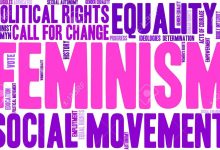
|
Getting your Trinity Audio player ready...
|
In July 2023, a shocking story gripped Nigerian women particularly. It was one of murder. Many gender-related homicide stories had trailed before then, but each time another one broke, it came with feelings of shock, anger, powerlessness and a sense of loss. On this particular day, a man identified as Benjamin Best took to social media to confess to killing his girlfriend.
“I got into a fight with my girlfriend @austa_xxo, in which I mistakenly stabbed her and ran away out of fear and been suicidal since then,” parts of his confession reads on his Instagram story.
Less than four months later, before Nigerian women could recover from the news or secure justice for the victim and her family, another similar story broke.
Damian Okoligwe, a 400-level student of Petroleum Engineering, University of Port Harcourt (UNIPORT), had murdered his girlfriend. The perpetrator had killed and dismembered the body of his victim, Justina Otuene, a 300-level student in the Department of Biochemistry at the same university.
Another recent story of a Nigerian man killing his wife can be found here. Consistent with the report that the home is the most dangerous place for a woman, the victims were found in a house.
The prevalence of physical, sexual or emotional violence by Nigerian men against their partner has been reported to be as high as 69%. Also, almost one in four women in the country have reported experiencing intimate partner violence (IPV).
A recent study published in the Pan African Medical Journal (PAMJ) reports the percentage of Intimate Partner Violence (IPV) in different areas of the country. In Lagos, the southwest region, there is a one-year prevalence of 29%, with the majority of respondents reporting psychological (23%), physical (9%) and sexual (8%) abuse. In Oyo, the prevalence is 31.1%. In low-income communities in the southwest, there is a lifetime prevalence of physical abuse by male partners at 28.2%.
Studies among pregnant women in Northern Nigeria found a prevalence of 28% in Zaria and 63.2% in Jos. In Sokoto, 30.4% of women experience physical violence at the rate of 62.7%, while psychological violence is as high as 53.5%. Beyond physical and mental abuse, economic violence is reported at 48.5% and sexual violence by men against women in the region is at a rate of 57.3%.
According to BMC Women’s Health 2018 report, IPV is widely accepted in many low-to-middle-income countries, including Nigeria, due to traditional norms that support male dominance. The tolerance for male violence against women is also prevalent in the internet space, where women are almost always victim-blamed, particularly by the perpetrator demographic– men and women’s demise is often used as a cautionary tale.
One commentator, GO0DHardDick, reacting to Damian Okoligwe’s killing of his girlfriend for a supposed money ritual, wrote:
“Nigeria girls are so daft that they wouldn’t mind dating a ritualist, so long he has the money to spend and lavish on her. I’m very sure that girl had responsible guys coming for her, but of course, she rejected them all probably because she felt they were broke, only to end up with a killer.”
The sentiment that Nigerian women are dating “ritualists or Yahoo-boys,” and thus they deserve the horror, is peculiar in the Nigerian media space. Yet, this hatred is reserved for only the “girlfriends” of the supposed Yahoo boys and not the internet fraudsters themselves.
When it comes to taking action against yahoo-boys, many Nigerian men ironically believed they should be “rehabilitated.” Tunde Onakoya, 28-year founder of Chess in Slums Africa, launched a project where 50 Yahoo boys are assigned a mentor who devotes two hours weekly for two years to guide them on a new skill path with stipends. The project tagged “very successful” received undisclosed funding from Iyinoluwa Aboyeji, founder of Future Africa.
Meanwhile, amid the empathy and grace reserved for the “Yahoo boys/ritualists,” continues the mockery of their murdered victims. An instance of this mockery extended to the sufferer of Damian Okoligwe’s violence can be seen below.
Way forward
It is apparent that as long as we live in a patriarchal world, femicide will continue to be a prevalent issue. Thus, ensuring women are given equal opportunities in society, whether in the workplace or concerning access to education, is essential.
Women should remain committed to holding and advancing their careers to access places such as legal chambers, political rooms, and law enforcement agencies where they can influence laws and policies that benefit them.
More agencies, like the Lagos State Domestic and Sexual Violence Agency (DSVA), should be established in different parts of the country to help get justice for victims and hold perpetrators accountable in such a way that it would serve as a deterrence to violent men.
Amongst all, every individual should become an advocate in their space towards ending femicide and male violence against women.
Editor’s Note: This story was first published on SheHUB.tv






